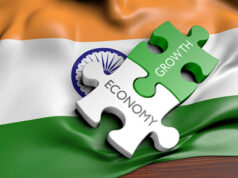On November 4, at the ASEAN’s Summit in Bangkok, Prime Minister Narendra Modi announced that India is leaving the Regional Comprehensive Economic Partnership (RCEP) after years of negotiations. Of all the bad decisions of the government, this one will hurt India the most in the long-run. In joining the RCEP, India, along with 10 ASEAN nations and Japan, South Korea, China, Australia, and New Zealand would have been part of the biggest trading bloc in the world and would have witnessed unimagined prosperity.
India is out of both RCEP and the 11-member Comprehensive and Progressive Agreement for Trans-Pacific Partnership; the two agreements that will define the future of international trade in the 21st century. Ordinary Indians will suffer drastically from this blunder of the Modi Administration, just like we suffered under the License, Permit, Quota Raj pre-1990s. Not joining the RCEP will put India’s dreams of becoming a global manufacturing hub on hold. It will also harm the Indian consumers by limiting their choices.
The rejection of the RCEP came from the same unfounded fears we had before India liberalised in the early 1990s. Yes, some industrialists would suffer losses from foreign competition, some tradesmen will lose jobs, etc. However, as we all know, the gains from international trade are much higher than the temporary losses India will have to suffer. The same fears were raised before the reforms in 1991, and history has proved all the fears unfounded. Without trading with other nations, we would still have been stuck driving in Ambassador cars and riding Bajaj Chetak.
Our leaders must understand that trade benefits us all. Think of your day to day life, how bad it would be if we cannot trade? Imagine not being able to buy groceries without paying a tariff, or having a quota on how many clothes you can own. That is what India is choosing. We have told the world that India is not open for business, anyone wanting to open a new manufacturing facility should go to China or perhaps Vietnam or Cambodia.
The government claims that it wants the ease of doing business, but we are unable to trust that our businessmen are capable enough to face foreign competition. And in doing so, we are depriving 1.3 billion Indians of the benefits that could accrue from cheaper goods and access to better technologies. Without RCEP, we will have to forgo thousands of verities of goods or fly to Singapore or Thailand when we want high-quality merchandises.
I am not suggesting that RCEP in itself would solve all our problems. It will require a lot more reforms in land, labour, and business regulations. RCEP would have provided the push needed for carrying out these reforms, but Modi has clearly shown that he is not interested in standing up to the domestic pressure groups who are ready to deprive benefits to 1.3 billion Indians for their selfish gains.
The Indian industrialists will always be against opening up the economy because they know they will lose in competition. Even in 1991, Bajaj wanted the Indian economy to remain sheltered from foreign competition so it could keep selling us its low-quality scooters. Now, the same company exports so many rickshaws to Africa that they are called Bajaj. In the current political climate, reforms like that of 1991 are not possible. But India could have benefited from incremental reforms which RCEP would have compelled it to take over the next two decades. The 15 other members graciously allowed many concessions to India, unfortunately, the government still chose to lose a historic opportunity, and save its cronies from foreign competition.
Read More: In India-China Battle, Trade Matters, Deficits Don’t
Post Disclaimer
The opinions expressed in this essay are those of the authors. They do not purport to reflect the opinions or views of CCS.






